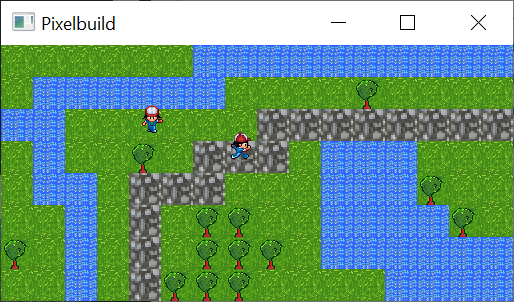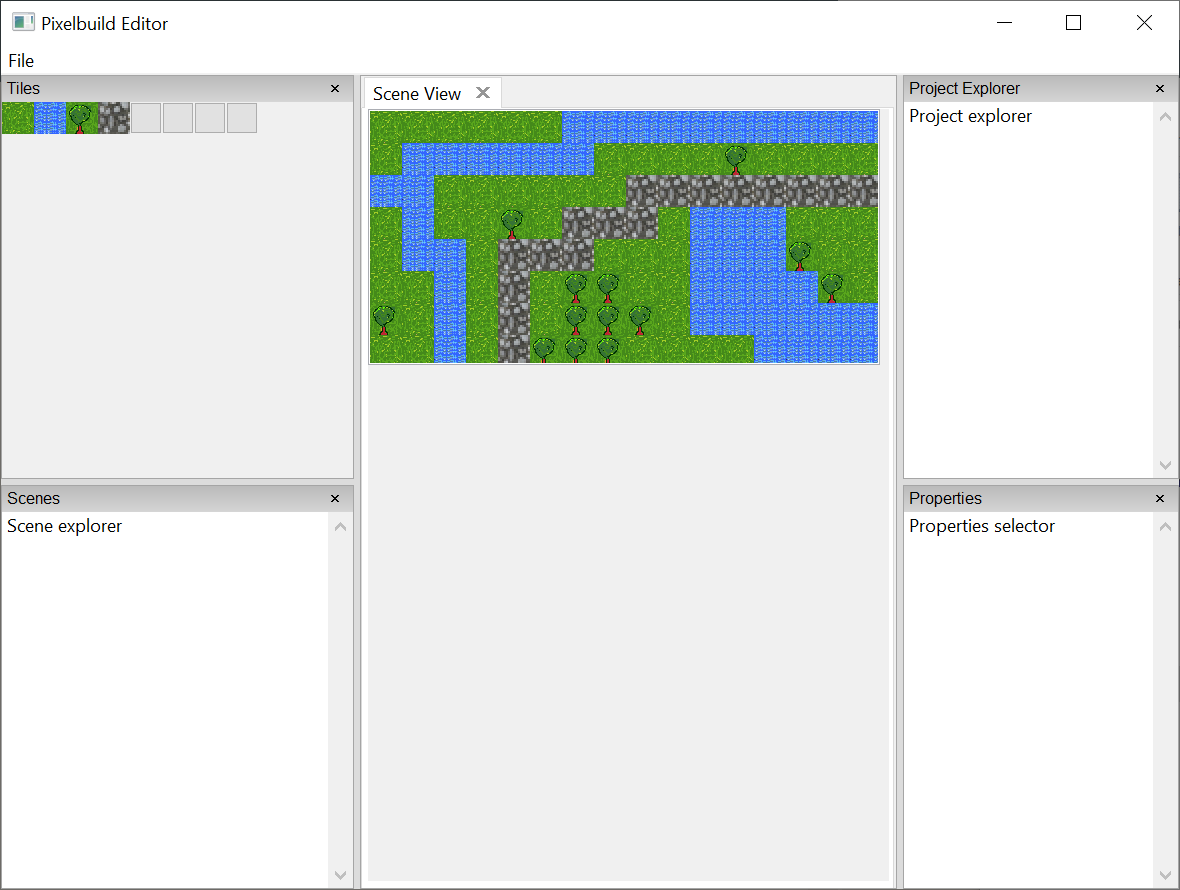
In the beginning, I had and idea: what if I could create a virtual RPG-style world, where the user is the builder of his own game? I had drawn my inspirations from other games like Roblox and RPG Maker into making my own, free and open-source version.
Open-source means the source code which makes the game can be freely distribuited across the Internet at no charge. We use many open-source programs in our daily lives, like VLC Media Player, Firefox, among many others. Having created a mass-multiplayer online building game that can have volunteers in the open-source community is a big advantage for me since they can fix many problems in the game's code (called bugs) and learn from them while I inspect their work in my code.

I had split the game into three main components: the client, which is the game itself installed into the player's computer; the engine, which is what drives the game's graphics and sound; and the server, which drives interaction between other players through the network and for handling game mechanics. I had also created a Pixelbuild editor which is where the game's building takes place. You can use the paintbrush to draw tiles to create your own world. Then, using Python scripting, you can set a behavior for every object and player in your game. I had also planned for the editor to have the ability to convert RPG Maker games into Pixelbuild games. I had also planned for the engine to be separate from the client, not only because to share code between the client and editor, but also for others to create standalone games in C++ that use the Pixelbuild engine.
In the beginning, God created the heavens, and the earth. [Genesis 1:1]
...and I was the "God" of Pixelbuild. I created the player, the tile map and game mechanics from scratch. But I wasn't a true "God" since I needed some help online - like most programmers do. Since I was a lazy progammer, I've only written a few lines of code from every one week to one month. But it wasn't just lazyness that contribuited to this factor. I had a lot of school and homework, and most of the free time I would spend is at someone else's house, or if it's vacation, to the mountains or at the beach in another country.
I had originally planned to make an ASCII-style Rouge like game with the exact same purpose as Pixelbuild, but I have scrapped the project because it looked too boring. Maybe next time when Pixelbuild would get popularity to a certain degree, I would start working on that as well.
I had thought of Pixelbuild's architecture to be decentralized and not run on private servers, rather, the creator must host his own, like in Minecraft. I had dreamed of a vision for Pixelbuild to grow as a community of passion and creation, where everyone can create their own games for free. I had selected Python as the go-to programming language for Pixelbuild as it is more accessible to the general public, more popular, and easier to learn while also being very powerful. While Python remains the default programming language, the user can change to others like Lua or even C++.
I hope Pixelbuild will grow as a game and community where passion and creativity strives like in RPG Maker, Roblox, Minecraft and others, while also being a tool for education and entertainment. You can access the game's source code here and start contribuiting right now.